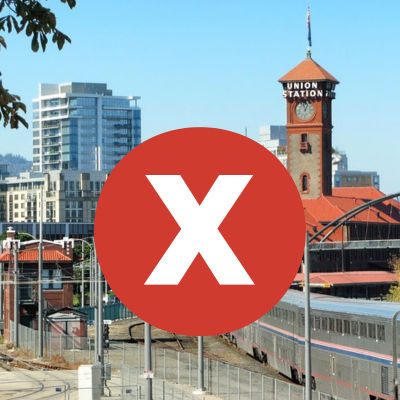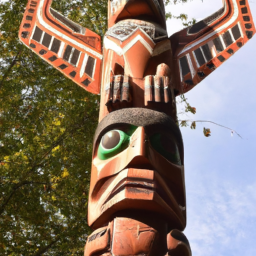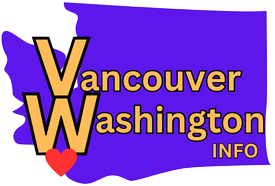
DO NOT Move to Portland Oregon
Table of Contents
ToggleDO NOT Move to Portland Oregon
Thinking about moving to Portland, Oregon? Well, you may want to reconsider! In a video by Living in Vancouver & Camas Washington, they outline seven reasons why moving to Portland might not be such a great idea. From higher taxes and a dirty environment to a serious homelessness problem and limited political dialogue, the drawbacks are quite substantial. Not to mention the density of the city and its complicated freeway system. However, if you’re considering a move to Vancouver Washington, the video argues that you might find a better quality of life on the other side of the river.
High Tax Rates
Comparison of taxes in Oregon and Washington
When considering the cost of living, taxes play a significant role. Oregon and Washington, two neighboring states on the West Coast, have different tax structures that can greatly impact residents. Oregon is known for having high tax rates compared to Washington. In Oregon, there is a state income tax, while Washington does not have any state income tax. Additionally, Oregon has a higher sales tax and property tax rate than its neighbor to the north. These differences in taxation can have a substantial impact on the amount of disposable income residents have and ultimately affect the cost of living in each state.
Impact of high tax rates on the cost of living
High tax rates in Oregon can contribute to an increased cost of living for residents. When individuals and families have a larger portion of their income taken out for taxes, it leaves them with less money to spend on other essential and discretionary expenses, such as housing, groceries, and transportation. The overall higher tax burden can push the cost of goods and services higher to compensate for the taxes businesses must pay. In turn, this can create a domino effect, making everyday items and necessities more expensive for the average Oregonian.
Effect of high taxes on small businesses and startups
The high tax rates in Oregon can also pose significant challenges for small businesses and startups. Small businesses often have tight profit margins, and when tax rates are high, it can place an additional burden on their operations. The higher taxes can limit the resources available for investment, expansion, and hiring new employees. Startups, which are already navigating a competitive landscape, may face substantial hurdles when attempting to grow and scale their businesses due to the financial strain of high tax rates. This can potentially hinder economic growth and entrepreneurship in the state.
Portland’s Homeless Problem
The extent of homelessness in the city
Portland, like many other major cities in the United States, faces a significant homelessness problem. The number of individuals experiencing homelessness in Portland has been steadily increasing over the past several years. According to recent data, there are thousands of individuals without stable housing in the city, which has put a strain on local resources and support systems. The visible presence of homelessness in Portland’s streets and public spaces has raised concerns among residents and local authorities, sparking efforts to address the issue.
Attachment of crime with homelessness
While it is important to approach homelessness with compassion and understanding, there have been instances where crimes have been associated with individuals experiencing homelessness. The presence of homeless encampments can sometimes lead to increased criminal activity, such as drug use, theft, and property damage. This connection between homelessness and crime has prompted community discussions about finding a balance between supporting vulnerable populations and maintaining public safety. It is essential to address the root causes of homelessness while simultaneously addressing the impact it may have on crime rates.
City’s response to the homelessness crisis
Portland has taken steps to respond to the homelessness crisis, recognizing the need for collaborative efforts from both local government and community organizations. The city has implemented various initiatives aimed at providing support to those experiencing homelessness, including the expansion of shelter and transitional housing options, increased funding for homeless services, and outreach programs. Additionally, partnerships with nonprofit organizations and stakeholders have been established to work towards long-term solutions. While progress has been made, the complexity of the issue requires ongoing commitment and collaboration to ensure positive outcomes for both individuals experiencing homelessness and the community as a whole.
Political Environment in Portland
The dominant political ideologies of the city
Portland is known for its progressive political leanings, with a majority of residents identifying as liberal or left-leaning. The city has a reputation for supporting environmental causes, advocating for social justice, and embracing progressive policies. This dominant ideology shapes the political landscape of the city, influencing decisions made by local government officials and the implementation of various policies and initiatives.
Lack of room for differing opinions
While the dominant political ideology in Portland fosters a sense of unity among like-minded individuals, it can sometimes result in a lack of room for differing opinions. This can create an environment where those with opposing viewpoints may feel marginalized or excluded from political discourse. It is important to cultivate a culture that values open dialogue, respectful debate, and the inclusion of diverse perspectives to foster a democratic society where every voice is heard. Embracing the diversity of opinions can contribute to a more robust and inclusive political environment.
Impact of politics on daily life and interactions
The political environment in Portland has an impact on daily life and interactions within the city. Political beliefs and ideologies often shape individual behavior and social dynamics. When residing in a city with a strong political identity, it is common for these beliefs to manifest in conversations, social circles, and community activities. Sharing political values can create connections and a sense of belonging, but it is also essential to navigate these discussions with respect and an openness to understanding differing viewpoints. Being aware of the influence of politics on daily life can foster a more engaged and informed citizenry.
Overpopulation and Housing Density
Statistics on Portland’s population density
Portland’s population density has been a topic of discussion as the city experiences significant growth. With increasing migration to the area and limited available land, the population density has been on the rise. According to recent data, Portland has one of the highest population densities in the United States, surpassing many other major cities. This high density poses unique challenges in terms of housing availability, infrastructure, and preservation of open spaces.
Impacts of overpopulation on residential communities
Overpopulation can have various impacts on residential communities in Portland. The demand for housing often outpaces the supply, leading to increased competition and rising prices. This can make it difficult for residents, particularly those with lower incomes, to find affordable housing within city limits. Additionally, strain on infrastructure, such as transportation systems and public services, can occur when population growth exceeds the pace of development. Balancing growth and the preservation of residential communities is a complex task that requires thoughtful planning and consideration.
Challenges of overcrowded areas
As areas become more overcrowded, a range of challenges emerges. Increased traffic congestion, longer commute times, and limited parking availability are common issues faced by residents in densely populated areas. The strain on public transportation systems can result in reduced efficiency and overcrowded vehicles. Overcrowding can also impact the quality of public spaces, such as parks and recreational areas, as the demand for these resources exceeds their capacity. Finding solutions to address these challenges is crucial for maintaining a high quality of life for residents in crowded areas.
Crime rate in Portland
Trend of rising crime rates in the city
Portland has experienced a concerning trend of rising crime rates in recent years. While the city has long been regarded as relatively safe, the increase in crime has raised concerns among residents and local authorities. Various factors contribute to this trend, including population growth, socioeconomic disparities, and drug-related issues. Recognizing the importance of addressing these criminal trends, law enforcement agencies and community organizations have been working together to develop strategies aimed at reducing crime and enhancing public safety.
Types of prevalent crimes
The types of crimes prevalent in Portland encompass a range of offenses. Property crimes, such as theft and burglary, tend to be more common, particularly in densely populated areas. Violent crimes, including assault and robbery, also pose significant concerns for residents and law enforcement agencies. Additionally, drug-related crimes contribute to the overall crime rate in the city. Understanding the types of crimes that are prevalent in Portland helps inform strategies for prevention and intervention.
Victim demographics and areas most affected by crime
Crime in Portland affects residents from all walks of life, but certain demographics and areas tend to be more affected. Low-income neighborhoods often experience higher crime rates due to socioeconomic factors and limited access to resources. Individuals experiencing homelessness are also more vulnerable to becoming victims of crime. It is important to consider these demographic factors when devising strategies to address and combat crime in order to ensure the safety and well-being of all residents.
Traffic Congestion and Road Infrastructure
Discussion on Portland’s traffic congestion
Traffic congestion is a significant concern for residents and commuters in Portland. With a growing population and limited infrastructure, the city’s roads often become congested, resulting in longer commute times and increased frustration for drivers. Rush hours and peak travel times exacerbate the problem, as major highways and thoroughfares experience heavy traffic volume. Developing strategies to alleviate traffic congestion is crucial for improving the overall livability of the city.
Analysis of freeway system
The freeway system in and around Portland plays a vital role in transportation. However, it faces challenges due to increasing demand and limited capacity. The existing freeway infrastructure does not always meet the needs of a growing population, and improvement projects can face significant logistical and financial obstacles. Balancing the need for infrastructure development with environmental considerations and local community impacts is essential to ensure a comprehensive and sustainable freeway system.
Comparison with traffic in neighboring cities
When compared to neighboring cities, Portland’s traffic congestion stands out as a significant concern. While other major cities along the West Coast, such as Seattle and San Francisco, also face traffic challenges, Portland’s traffic conditions can be particularly burdensome. The combination of population growth, limited road capacity, and urban planning considerations contribute to the city’s traffic issues. Understanding and learning from the experiences of neighboring cities can provide valuable insights into potential solutions for managing and improving traffic congestion in Portland.
Cleanliness Concerns
Emerging problems from lack of cleanliness
Cleanliness is an important aspect of maintaining a livable and attractive city. Portland, like many urban areas, faces emerging problems related to cleanliness. Issues such as litter, graffiti, and improper waste disposal can negatively impact the overall appearance and cleanliness of public spaces. These problems not only create an untidy environment but can also contribute to decreased quality of life for residents and visitors.
City’s response and approach towards cleanliness
The city of Portland recognizes the importance of addressing cleanliness concerns and has taken steps to improve the situation. Local government agencies, in collaboration with community organizations and concerned citizens, have launched initiatives aimed at maintaining and enhancing cleanliness in public spaces. These initiatives include increased litter pick-up and removal efforts, public education campaigns on waste disposal, and community involvement in beautification projects. By engaging both residents and visitors, the city aims to cultivate a sense of shared responsibility for maintaining a clean and attractive environment.
Impact on visitor and resident experiences
The cleanliness of a city significantly impacts the experiences of both residents and visitors. A clean, well-maintained environment creates a positive atmosphere and contributes to a sense of pride in the city. Residents benefit from a clean city through improved overall quality of life, increased safety, and a healthier community. Visitors, on the other hand, form their impressions of a city through their experiences, and cleanliness plays a crucial role in shaping these perceptions. By prioritizing cleanliness, Portland can enhance the experiences of both residents and visitors, contributing to the overall appeal and attractiveness of the city.
Oregon’s Weather and Climatic Conditions
Description of Oregon’s weather throughout the year
Oregon’s weather is known for its variability and distinct seasonal changes. The state experiences a temperate climate, characterized by mild and wet winters, and warm, dry summers. The western part of the state, including Portland, receives ample rainfall throughout the year, while the eastern region exhibits a drier climate. These weather patterns contribute to the state’s lush landscapes, vibrant vegetation, and diverse ecosystems.
Impact of weather on lifestyle and outdoor activities
Oregon’s weather influences the lifestyle and outdoor activities of its residents. The mild and wet winters encourage outdoor enthusiasts to engage in activities such as skiing, snowboarding, and hiking in nearby mountain ranges. Summers, on the other hand, provide ample opportunities for residents to explore the state’s landscapes, including its many lakes, rivers, and forests. The weather also influences residents’ clothing choices, with waterproof jackets and sturdy footwear being essential items to navigate the occasional rain showers.
Possible health impacts of local weather conditions
While Oregon’s weather offers a unique and diverse climate, it can also have possible health impacts on residents. The extended periods of rainfall and cloudy weather during winters can contribute to seasonal affective disorder (SAD) and affect mood and mental health. Additionally, those with respiratory conditions may be more sensitive to the damp air and increased mold growth. The variable weather patterns may also impact individuals with certain medical conditions, such as arthritis or migraines. It is important for residents to be aware of these potential health impacts and take necessary precautions to mitigate any adverse effects.
Conclusion
Living in Portland, Oregon, presents both benefits and challenges. The city’s high tax rates, while impacting the cost of living, also support public services and infrastructure development. Oregon’s controversial gas pumping law may inconvenience residents and visitors, but it also protects jobs in the gas station industry. The city’s homeless problem poses complex social issues, but efforts are being made to provide support and find long-term solutions. Portland’s dominant political ideologies foster a sense of unity, but it is important to create space for differing opinions. Overpopulation and the associated challenges require careful planning to balance growth and maintain livability. Rising crime rates highlight the need for community engagement and proactive policing strategies. Traffic congestion and cleanliness concerns are ongoing challenges that require continuous efforts. Oregon’s weather offers diverse climates, impacting residents’ lifestyles and health considerations. In considering a move to Portland, it is important to weigh both the challenges and the potential benefits, ensuring that individuals make an informed decision based on their personal circumstances and values. Ultimately, Portland offers a unique blend of natural beauty, cultural diversity, and progressive ideals that may resonate with those seeking a vibrant and inclusive community.

Ridgefield Washington
You May Also Like

Exploring the Indigenous Heritage of Vancouver Washington
4 September 2023
7 Biggest CONS of Living in Vancouver Washington
18 August 2023

